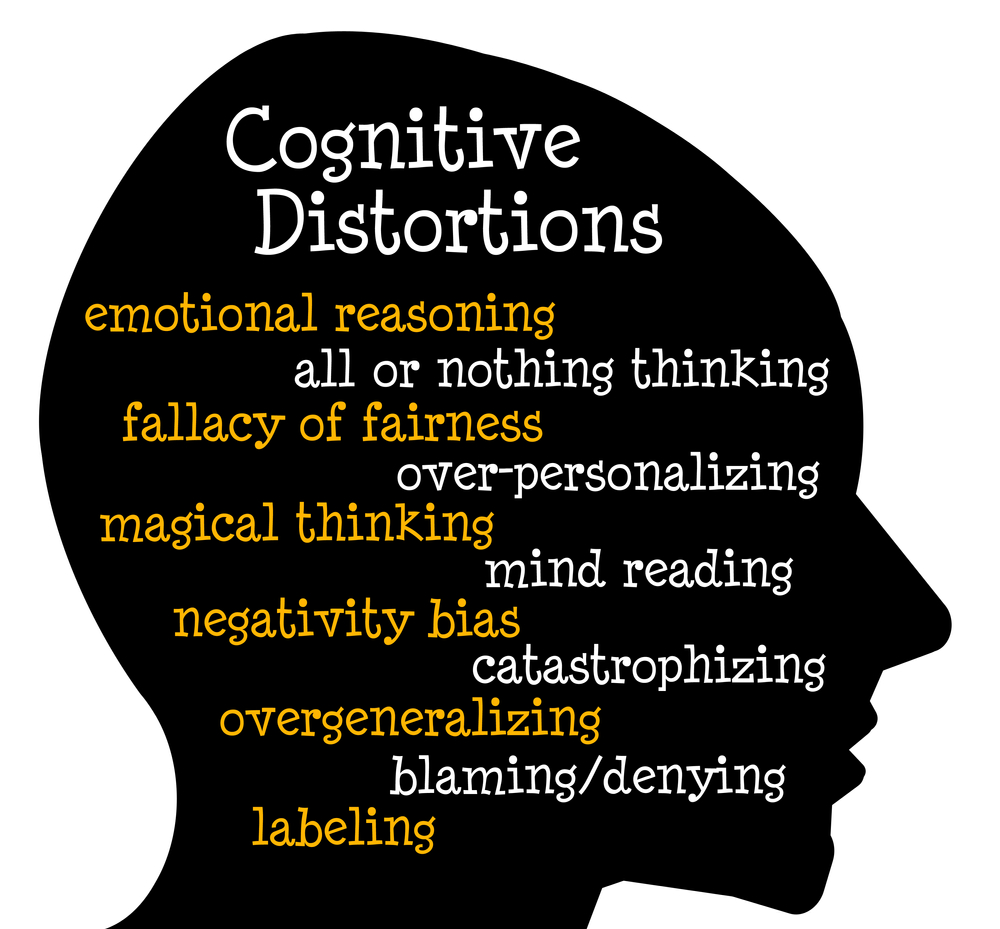Speaker 1 (00:03):
Welcome to the renewal session where mother and daughter therapists talk about reclaiming your purpose, redefining your relationships and renewing your mind by combining therapy and faith. These two women of different ages, different perspectives and different opinions tackle the how to, of transformation and share the behind the scenes on others who have done the same.
Speaker 2 (00:27):
Welcome back to this week’s episode. Guys. I’m so excited to get to talk to you, but it’s kind of weird. Katie’s not going to be on this episode. And so, um, we’re going to miss her, but part of the reason she’s not on this episode is because she’s just a little burnt out with the pace of her life, which is what we’re going to talk about today. And we’re going to talk about the seven signs of emotional burnout. How do you fix this exhausted bringing that kind of tends to overthink things. And so I’m going to jump right in and tell you that we just got back from family vacation. And the first three days I slept 12 hours a day. I think at one point I went to bed at like eight o’clock at night, and I woke up the next morning, like 10 30, got dressed, put on a swimsuit and got in the pool and was in the pool from 11 to four, came home, took a nap, got up, had dinner and went right back to bed.
Speaker 2 (01:24):
And that was like the first three days of my vacation. And it was wonderful, but it also made me realize just how depleted I was going into the vacation. And there was crazy stuff that went on my passport expired. I had to jump on a flight to Dallas and then I didn’t get there. So they rerouted me to Oklahoma city and then I had to drive three hours to get to Dallas. So I didn’t get there till three in the morning. It was like a whole debacle. So I did go into vacation legitimately overloaded, but I started to take like an inventory of the fact that I have been in this overloaded state for quite some time. And so when I started thinking about things that I am doing that point to this emotional burnout, I thought I’m just going to write them down and I’m going to tell them to you because I want you to think about like, do I live in a burned out place?
Speaker 2 (02:21):
Do I find myself, um, just constantly saying, I’m just exhausted. I’m too, I’m too overwhelmed. In fact, I canceled my 50th birthday party cause I was like, I’m super burnt out. So let’s talk about this. Okay. The first one that I noticed in my life is just a fatigue that comes around. Like it’s not even like lethargic. This is like a fatigue that even rest doesn’t really solve. And usually for me, the fatigue comes from having to be on all the time and being a therapist. Obviously you don’t, you don’t want to do the juice service to anyone by not being fully engaged in that, but it takes a lot of emotional focus. It takes a lot of, um, mental focus. And then there’s just this element of compassion that has to be exhibited and willingly exhibited, but nonetheless exhibited. And so sometimes my fatigue is, is mental and sometimes it is emotional fatigue and in my case, it’s compassion, fatigue.
Speaker 2 (03:29):
So I want you to think about like, okay, when I find myself in burnout, what kind of fatigue am I experiencing? The second one is, is that usually when you’re going through some, some form of exhaustion or burnout, we actually don’t do a great job at taking care of ourselves because of the fact that we are so depleted. Right? And so these natural things that we do in our lives to keep us focused, to give us energy seem too much. And so think about like, okay, do I make a promise to myself? Like, oh, I gotta get my act together. I got to start having balance and structure and I’m going to get back to working out, or I’m going to get back to going on a walk or, um, doing some type of a practice, maybe it’s meditation or yoga, these kinds of things.
Speaker 2 (04:19):
And then somewhere along the line, it just drops off to the side. And then now on top of not doing that self care, you’re also feeling bad about the fact that you haven’t done your self-care. So that’s that’s sign number two, then sign number three. Is that your general overall performance is declining. And what I mean by that is the things that normally don’t take a lot of effort for you to do those things are suffering just as much as maybe your time management or your focus. So it doesn’t just have to be like, oh, I went from getting all A’s to getting DS. That’s not, I mean, that, that is a part of it, but actually another part of it is just simply like my ability to stay focused and motivated and um, feeling like certain things are effortless, that diminishes. And so one of the ways that I began to notice things is that when I just push things off, over and over again, because I’m so desperate to do nothing.
Speaker 2 (05:25):
And in fact, even this podcast is a little ironic because Katie and I were talking briefly earlier and I said, we needed to record the podcast. We were on vacation. We didn’t do it last week. We just got to get it done. And she’s like, well, how about I, I call you after you get done with clients tonight. I was like, nevermind, nevermind, nevermind. I’ll just do it myself this week. I know you’ve got a lot going on in your, in your life. I’m just going to get it done because I want to relax when my clients are done. Why? Because I only have so much capacity. And this is what this performance decline is about. It’s about like a diminished capacity to handle things and needing desperately to have an off button in your life. Number four is emotional volatility. Now this doesn’t mean you have to lose your crap, that you’re crying, that you’re, you know, um, mean to the people around you.
Speaker 2 (06:17):
That’s not necessarily it. What it is is about emotional regulation and feeling like you have some semblance of emotional order in your life. And a lot of times when our brain is exhausted, what actually happens is we lose access to our executive functioning, which executive function functioning and energized brain actually allows us to regulate our emotions. Um, keep up necessary connections with people, keep those relational circuits on and keep us focused. And so when I say, oh, we’ve got this emotional volatility. What I’m really saying is we just don’t have any space right now to be able to regulate things. And so we could be shutting down or we can be kind of bleeding out all over the place and going off on people and all of that. So I think it’s important to realize like this exhaustion can lead to cutting us off from the ability to regulate our emotions.
Speaker 2 (07:19):
So number five, um, you find yourself feeling kind of easy or like, okay, in clinical terms, it’s called dysthymia, but I like to call it the Igor effect where it’s just like, life is hard, you know? And a lot of the time you go, you want to conjure up enthusiasm. You want to be connected. You want to feel fully engaged, but it just feels like I can’t. And I know for me, a lot of times that when I can’t, I isolate, I just, you know, somebody could ask me to do the funnest thing on the world, in the world. And I’m like, I just can’t, I don’t have it in me. Right. And that’s what we’re talking about here. This, like, I just, I can’t do it. I don’t have any reserve. And number six is right along with number five and it’s that the social life begins to decline.
Speaker 2 (08:15):
Right? You tend to isolate. I heard, um, this podcast the other day, and this woman was talking about FOMO and how that was a phenomenon. But now they’re actually saying we have Fogo. And I was like, what’s Fogo. And she said, Fogo is the fear of going out that the last year has actually produced in us an anxiety that is a cultural anxiety coming from COVID. And so people are actually because of the isolation that occurred, the lockdowns, the masks, all of that lack of human contact. We are now in this place of just lethargic living and just not wanting to go out, not wanting to deal with what is going on in the world around us. And so that’s, that’s another piece. Our social lives may have declined simply because of the pandemic, but at the end of the day, it probably also declined because the emotional toll that the pandemic took on us or the emotional toll, whole of changing how we work or how we deal with our kids are any of those things has just caused us to shut down.
Speaker 2 (09:22):
And then the final one is, is probably a really big sign of like, Ooh, these other six are really building up. And that is just a general feeling of hopelessness, the difficulty in seeing anything optimistic, anything that might change your you’re grasping for a resource, but have no ability to get it or say sustain it. And so there’s this serious feeling of I’m just giving up. I’m not even gonna fight to, to find a solution or reach out to somebody and say, Hey, I’m really struggling here. And so what, what happens out of this is we’re just this exhausted brain or depleted brain I heard, um, recently in a Ted talk. I think that I trying to remember the guy’s name is if I can remember it, I’ll, I’ll remind you, um, next time. But the depleted brain, he says is a distracted, impulsive. Can’t seem to see the, um, implications has difficulty making decisions.
Speaker 2 (10:29):
And so I want you to think about, am I suffering emotional burnout, or am I literally suffering from an exhausted brain where there is just too much coming at me at one time and I have just gone into shutdown or I’ve gone into whatever. I’m just going to do it. And my can to think about the consequences right now, one of the ways, cause I’m, I’m big into. Okay, well, great. Thanks for popping out the problem, Marianne, but what’s the solution. Well, okay. Here’s the solution. It is getting curious. And I I’ll talk about this a million times over the course of the podcast episodes, but I really believe that one of the greatest gifts that we have at our, at our disposal is curiosity and getting curious about ourselves, like what’s going on with me? What is that feeling? What triggered it. Um, and then, but being curious, curious with compassion attached to it.
Speaker 2 (11:25):
And so one of the things that I think is super helpful for me that I’ve done when I’ve experienced these kinds of signs in my life is to ask myself, what, what do I need most out of this situation or this season of life? Like, what’s the most important thing, because the first indication that people do when they sense that you’re overwhelmed is they will actually have a conversation about what do I need to be removing from my life? And that’s fine. Like, we, we probably are overloaded. We probably do need to delegate things or are saying no to opportunities and set boundaries. And, and those things are important. But sometimes that actually is not what we need. What we actually need is somebody to kind of walk alongside us. And so I want to give you, um, let me see how 1, 2, 3, 4, 5 types of things that I think all of us are longing to experience.
Speaker 2 (12:22):
And when you are an exhausted or emotionally burnt out place, you might not be experiencing these in your life. And so here’s the five belonging, meaning security, significance, and freedom. Now I was talking to somebody the other day and they were telling me a story about planning their birthday. Well, of course I’m like tuned into that because I’m getting ready to turn 50. And I was going to have this birthday, which as I already mentioned, I’ve canceled because I’m burnt out. But I, as they were telling the story, they were S they were saying, you know, these, um, these people, aren’t going to be able to come. And, you know, this really hurt my feelings and all of that. And I’m like, of course, like, why wouldn’t that hurt your feelings? They’re your, they’re your people and, and everything. And so where I was listening and what I heard was this deep desire for significance.
Speaker 2 (13:15):
And I got to thinking for me, when I think about my birthday planning, and I think about why did I say, yeah, I’m just not going to do it. I’m overwhelmed and said, I’m going to do it this way. Kind of thing. I got to thinking, well, what is it that I’m really missing in my life right now that I think I’m going to gain by canceling my birthday party. Right? And the answer for me was freedom, freedom to do whatever I wanted freedom to not have a plan. I was desperate. I am desperate for emotional, like cathartic freedom and just being able to do, and I don’t want to have to entertain somebody. I don’t want to have to plan something. And what happens if my mood that day is something that I’m like, I just can’t. Right. So I started to realize what I’m really needing is, is this freedom to like wake up the day of my birthday and do whatever I want to do and, and make that day a special day, because that’s what, like, I want to do that day.
Speaker 2 (14:16):
Um, but I also started to realize, like, when I think about who I want to spend that day with, there are people that give me a sense of belonging. They’re include inclusive people. So I will spend that day. I’m sure what somebody, but it’ll be the, somebody that like, is allowing me the space to just be, do and feel a sense of still feeling connected to somebody. Even though I might not necessarily want to like, have some big gathering, like I already even told my husband, I’m like, I don’t want to go to a dinner now. Of course, I’m saying this to you in today’s mood, who knows, uh, what is it like three weeks from now? I might be,
Speaker 3 (14:57):
I can’t believe I canceled my party as, I don’t know what I was thinking. My
Speaker 2 (15:01):
Mood is better. Well, that’s, my mood is better passively because I’m acknowledging that I’m on empty. Right? So I want you to think about like, how many times do you pull yourself out of things, or you just feel like you don’t have anything to rally inside of yourself and out of these five things, this sense of belonging, meaning security, significance, and freedom, which of them do I need to be experiencing the most right now? So I can be re-energized so that I can regulate my emotions and make these connections and staying engaged. And so these are just some of the thoughts that happens. And I want to add on the end of this, because, you know, neuroscience is like all the rage right now. And I’m going to tell you this, that when we are living with our relational circuits on, and we’re creating these connections, we’re releasing Oxy, um, oxytocin, oxytocin.
Speaker 2 (15:57):
Yeah. I almost said Oxycontin. That’s not right. Oxytocin and, and trust and rapport and bonding begins to happen. And so sometimes we’re in, when we’re in these compromised states, we’re not releasing that oxytocin. We’re not releasing the dopamine that is needed to kind of rally us. Right. And so when we start to feel hope again, and we trigger this sense of possibility of being able to get up and do things and feel energized, what happens is we release dopamine and that creates more motivation and creativity, and it gets us goal-oriented again. And so I tell you all of these things to say, okay, it’s super normal to experience these things. And these are some of the ways in which it manifests itself. These are general. You might have very specific ways that this kind of exhaustion or burnout presents in you, but these are just general examples.
Speaker 2 (16:56):
And then I want you to think about like, okay, how do I get re-energized? What are the things that I’m needing in my life meeting in my life, not just getting rid of in my life, because we often tackle a problem with coming up with a solution of what do I need to get rid of. That’s overwhelming me and that’s important, but we also need to have something that we’re bringing in so that we are getting filled up with something, right? Because it’s only, it’s only helpful to remove something from your life. If you’re going to do something different with the space that that removal allows you to have. Right. And so one of the things I’ve been thinking about lately is this idea of quieting and just being still and not judging what I’m supposed to be doing while I’m still, and this is a real practice because my usually happens.
Speaker 2 (17:51):
And in my phone is still in my hand, Netflix or Amazon prime is on, I might be sitting on the couch like surfing through Pinterest or playing a game, or I don’t know all kinds of things. Right. But I’m talking about like actual, what would happen if I just sat down, closed my eyes just like was for five minutes, there was no agenda. So I tried it. This is a funny little story. I tried it the other day. And I was like, okay, I’m going to do this. You know, I’m just going to practice. You can’t tell other people to do something. If you’re not willing to try it yourself. Right. So I go on, I sit on the couch right outside my office, everything. And I’m like laying there with my head back and everything. And my son comes out of his room and he’s like, are you okay?
Speaker 2 (18:38):
Did you have a seizure? What’s wrong with you? I started to realize like, oh my gosh, like me just sitting down and resting is so unusual for me that he thought something’s wrong. And I was like, no, I’m just chilling. He’s like, huh. Okay. Whatever. And he walks away and I, I went back to chillin and I fell asleep. I fell asleep for 20 minutes and I woke up and I was like, okay. And I noticed that instead of my breath catching in my chest, which is what happens when I’m burnt out or I’m overwhelmed. Instead I was breathing into my belly and I was like, oh, this is good stuff. And so I want to encourage you just to do some deep breathing, just sit and be quiet and don’t have an agenda take away the noise so that you can actually just be, and you don’t have to incorporate some practice to do that.
Speaker 2 (19:36):
But if you do, that’s fine too. It’s like, whatever makes, makes it better for you. But I just want to extend the invitation that you have this power to reenergize yourself. And you have this power to create solutions for yourself by saying no to some things, but yes to you. And so I just want to invite you to do that. I want you to think about the things that have been mentioned here, and I just want you to have that renewed sense of purpose, confidence, and peace. And so until next session, I hope you have a great week go off and find what you need. That’s the most important to get you. Re-energized by guys.
Speaker 1 (20:23):
Thanks for tuning in to the renewal session podcast. If you want to continue the conversation or share your takeaways, we want to hear from you head on over to our instagram@therenewalsessionorourblogatrenewalsession.com and comment on your favorite part, new episodes are dropping each Thursday and we can’t wait for you to tune in next time.









PLEASE COMMENT BELOW